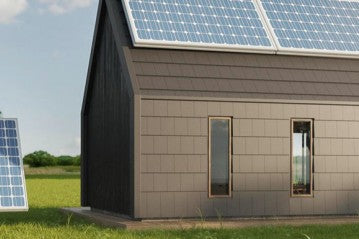
Solar energy has gained immense popularity as a renewable and sustainable source of power. As more individuals and businesses are looking to harness the sun's energy, questions arise about the necessity of battery storage. In this blog post, we will explore whether it is possible to use solar panels without battery storage, the benefits and limitations of this setup, and the role of a solar charge controller in optimizing solar panel performance.
I. Understanding Solar Panel Systems
Before we delve into the topic, it is important to understand the basic components of a solar panel system. A typical solar panel setup consists of solar panels, an inverter, and a battery bank (optional). Solar panels capture sunlight and convert it into direct current (DC) electricity. An inverter then converts the DC electricity into alternating current (AC) electricity, which is suitable for powering electrical devices in our homes or businesses. Battery storage is an additional component that stores excess energy generated by the solar panels for later use when the sun is not shining.
II. Solar Panels Without Battery Storage
Contrary to popular belief, it is indeed possible to use solar panels without battery storage. This setup is known as a grid-tied or grid-connected solar system. In a grid-tied system, solar panels are connected directly to the electrical grid through an inverter. The electricity generated by the solar panels is fed into the grid, offsetting your energy consumption from the utility company. When the solar panels produce more electricity than you need, the excess power is sent back to the grid, often resulting in credits or compensation from your utility company through a net metering arrangement.
III. The Role of Solar Charge Controllers
Although battery storage is not essential in a grid-tied solar system, a solar charge controller remains an important component. A solar charge controller regulates the voltage and current from the solar panels to ensure they are operating at their optimal levels. It prevents overcharging of the batteries (if present) and protects the solar panels from damage caused by excessive voltage. In a batteryless solar system, the charge controller helps maintain the stability and efficiency of the solar panels by managing the power flow between the panels and the grid.
IV. Benefits and Limitations of a Batteryless Solar System
A batteryless solar system offers several advantages, including:
1. Lower Initial Costs: Without the need for expensive battery storage, the upfront costs of a solar installation are significantly reduced. This makes solar energy more accessible to a wider range of customers.
2. Simplified Maintenance: Battery storage systems require periodic maintenance and replacement, which can be time-consuming and costly. With a batteryless system, the maintenance is limited to the solar panels and the charge controller, reducing long-term maintenance requirements.
3. Grid Reliability: By relying on the electrical grid as a virtual storage system, you can always access electricity whenever you need it, regardless of weather conditions or fluctuations in energy production. This ensures a consistent power supply without worrying about battery capacity or lifespan.
However, it is important to consider the limitations of a batteryless solar system:
1. No Backup Power: In the event of a power outage, a grid-tied solar system without battery storage will not provide electricity to your home or business. This limitation is due to safety regulations that require the solar panels to automatically shut down during outages to prevent accidents for utility workers working on power lines.
2. Limited Energy Independence: Without battery storage, you will still rely on the electrical grid for electricity during nighttime or when the solar panels are not producing enough power. If your goal is to achieve greater energy independence, a battery storage system might be a better option.
V. Conclusion
Solar panels without battery storage offer a cost-effective and sustainable way to harness solar energy. By using a solar charge controller, you can optimize the performance and efficiency of your solar panels, ensuring they operate at their full potential. While a batteryless system has its limitations, it remains a viable choice for those who prioritize grid reliability, lower upfront costs, and simplified maintenance. When considering a solar panel system, it is important to consult with a reputable solar installer to determine the best solution for your specific needs and goals.
Harnessing the power of the sun through solar panels is an exciting venture, and whether you choose a system with or without battery storage, you can make a positive impact on the environment while enjoying the benefits of renewable energy.

0 comments